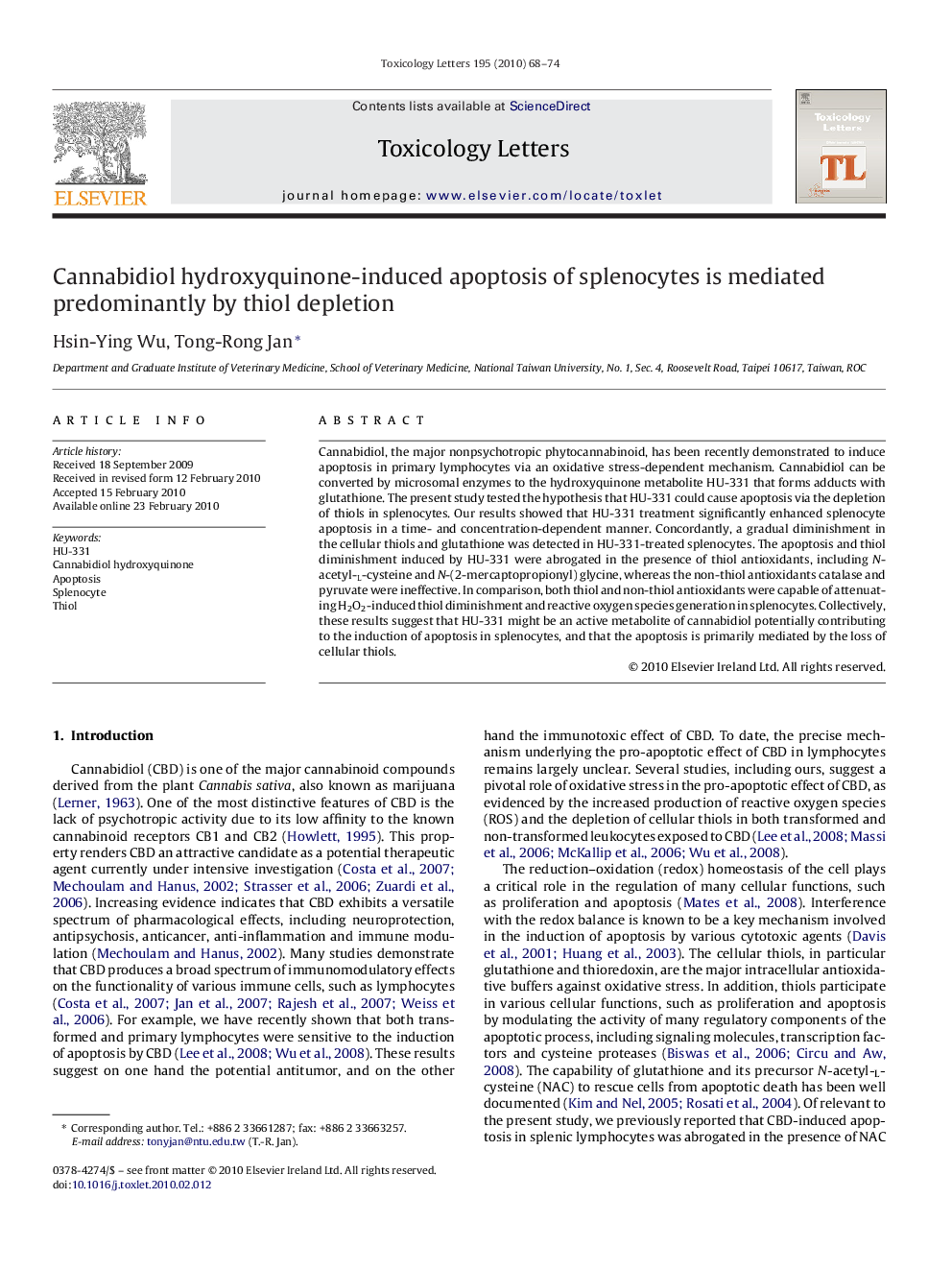| کد مقاله | کد نشریه | سال انتشار | مقاله انگلیسی | نسخه تمام متن |
|---|---|---|---|---|
| 2600153 | 1133257 | 2010 | 7 صفحه PDF | دانلود رایگان |

Cannabidiol, the major nonpsychotropic phytocannabinoid, has been recently demonstrated to induce apoptosis in primary lymphocytes via an oxidative stress-dependent mechanism. Cannabidiol can be converted by microsomal enzymes to the hydroxyquinone metabolite HU-331 that forms adducts with glutathione. The present study tested the hypothesis that HU-331 could cause apoptosis via the depletion of thiols in splenocytes. Our results showed that HU-331 treatment significantly enhanced splenocyte apoptosis in a time- and concentration-dependent manner. Concordantly, a gradual diminishment in the cellular thiols and glutathione was detected in HU-331-treated splenocytes. The apoptosis and thiol diminishment induced by HU-331 were abrogated in the presence of thiol antioxidants, including N-acetyl-L-cysteine and N-(2-mercaptopropionyl) glycine, whereas the non-thiol antioxidants catalase and pyruvate were ineffective. In comparison, both thiol and non-thiol antioxidants were capable of attenuating H2O2-induced thiol diminishment and reactive oxygen species generation in splenocytes. Collectively, these results suggest that HU-331 might be an active metabolite of cannabidiol potentially contributing to the induction of apoptosis in splenocytes, and that the apoptosis is primarily mediated by the loss of cellular thiols.
Journal: Toxicology Letters - Volume 195, Issue 1, 19 May 2010, Pages 68–74